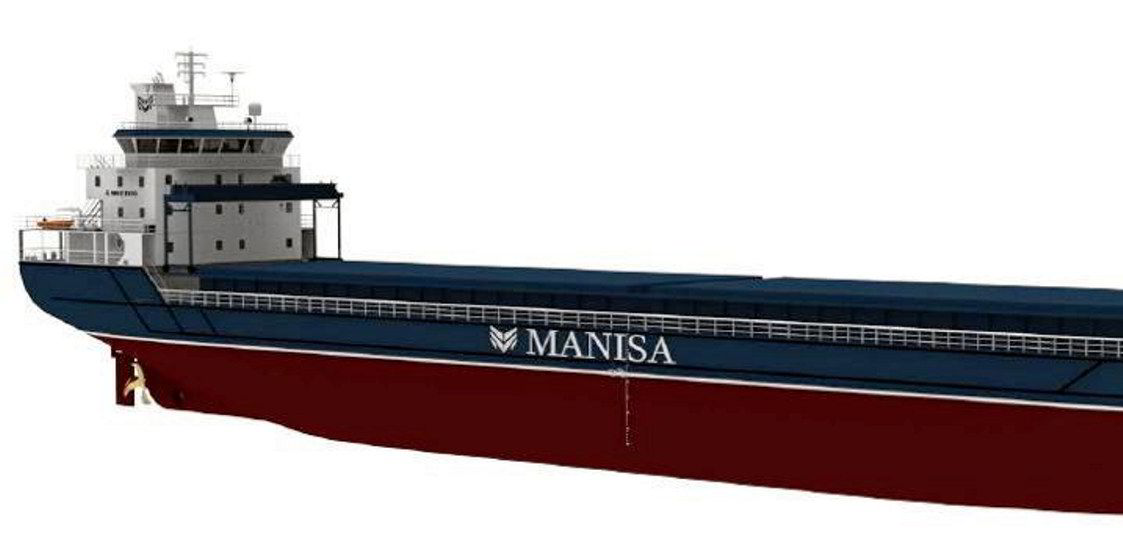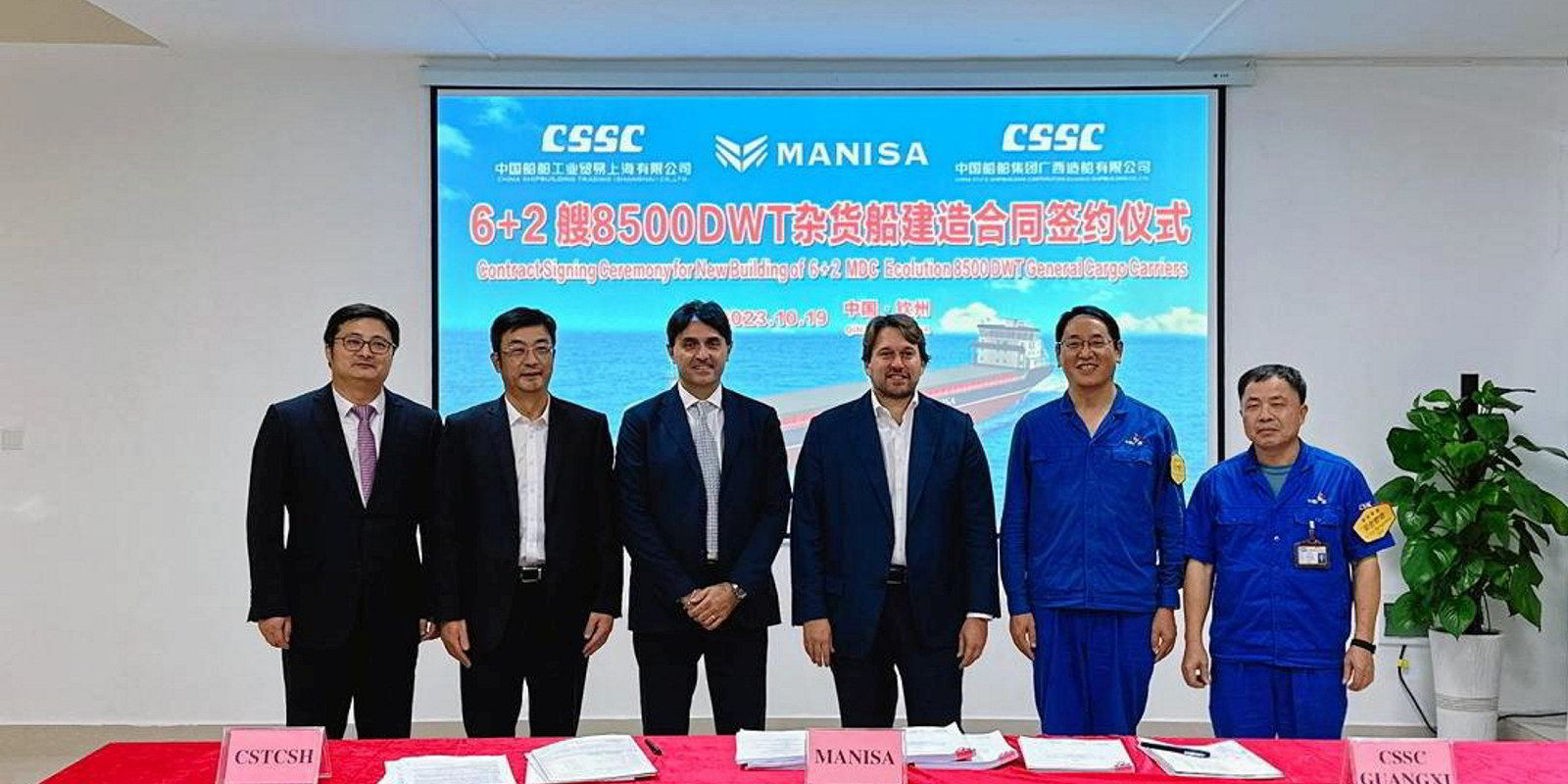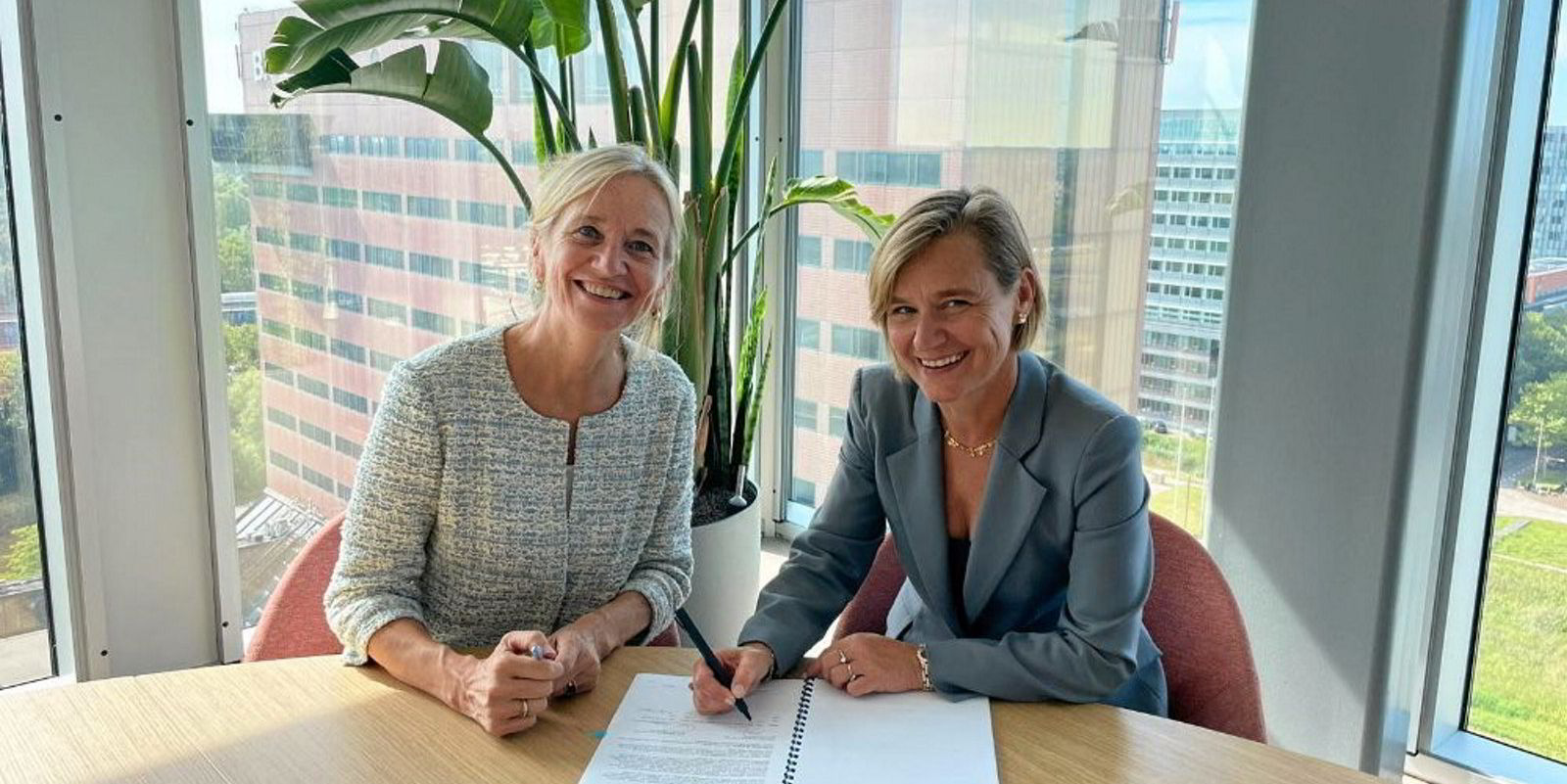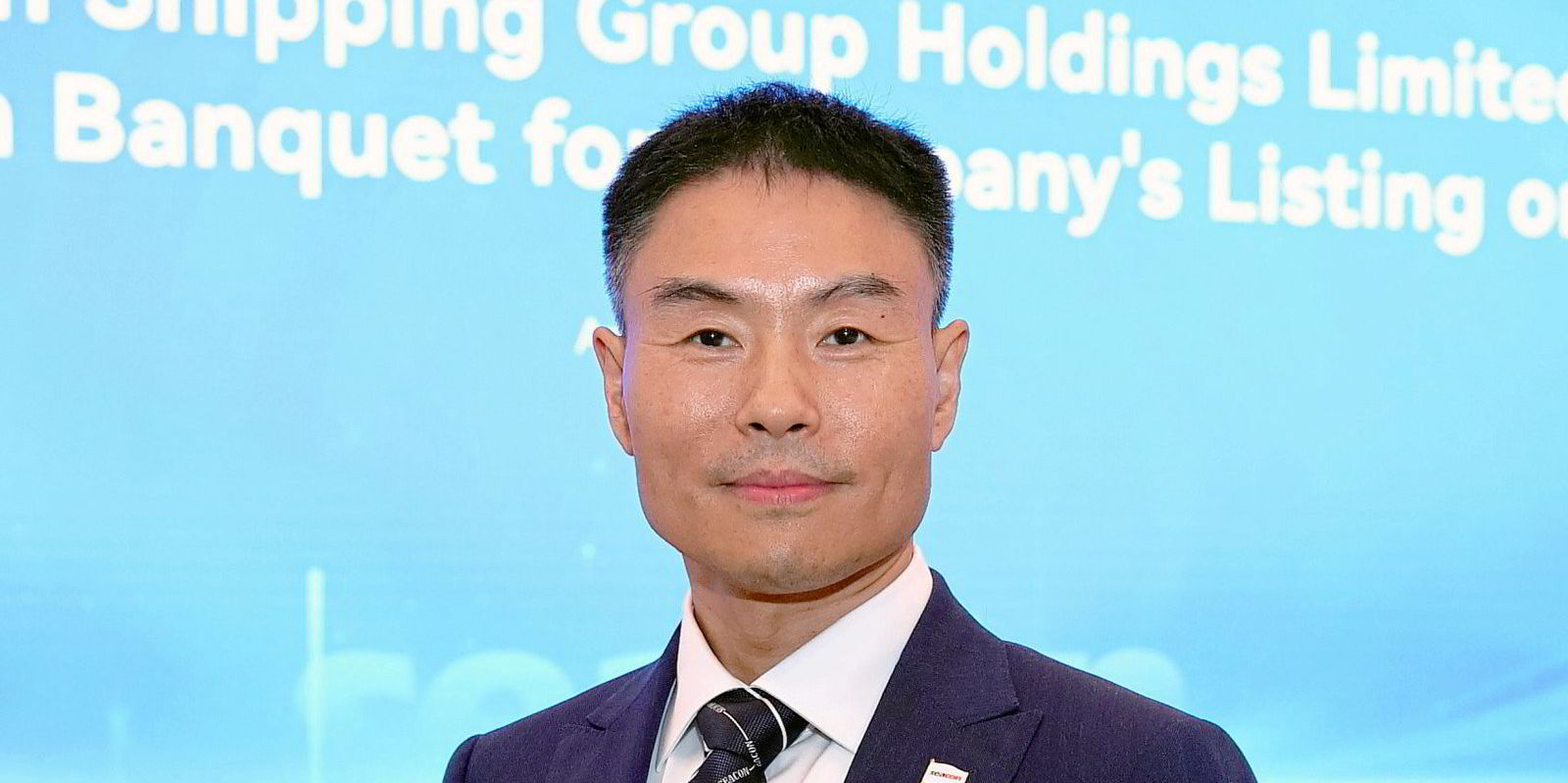Italy’s Manisa group of companies is placing its first newbuilding orders in more than a decade, as part of a fleet renewal plan that will see it expand by about a third.
The group unit has signed contracts with China State Shipbuilding Corp’s Guangxi yard for six firm and two optional 8,500-dwt vessels.
The gearless, open-hatch, ice-class 1B ships are due for delivery in 2025 and 2026.
They will be conventionally fuelled with upgraded engines able to burn all kinds of biofuels and hydrotreated vegetable oil. Additionally, there are provisions to make them ready for future methanol use and batteries-ready with the purpose of zero-emission operations in port.
“The really special thing about them is their newly designed, low-resistance hull form that reduces fuel consumption and consequently CO2 emissions by at least 40%,” an executive of the company said.
Manisa has been a busy player in the secondhand market. Earlier this year, the company bought the 8,300-dwt Vingaren (renamed Manisa Amelia, built 2023) right after it was delivered to its then-Swedish owners by Dayang Offshore Equipment.
Modern ships of that size, however, are extremely rare and hard to find in the secondhand market, so Manisa decided to go for newbuildings instead.
“The idea is to meet the new environmental regulations,” the executive explained.

The newbuilding programme marks the start of a fleet renewal process that will see the company expand by up to a third.
Private, family-run Manisa is part of a group that controls between 15 and 20 ships. Most of its vessels are fully owned, while others are chartered in or under management on behalf of third parties.
The company’s owner, the Scotto di Santolo family, has been in shipping for more than 40 years.
It began as a shortsea operator primarily transporting cement across the Gulf of Naples.
Manisa later expanded and is now carrying fertiliser, agricultural and steel products, as well as wood pulp, woodchip and some project cargo across Europe, the Baltic Sea and the Mediterranean.
As the European Union starts including shipping into its emissions trading system, owning environmentally efficient ships becomes imperative for vessel owners trading in the continent.
Manisa also expects its newbuildings to achieve low running costs and “excellent” ratings in performance and ship design benchmarks introduced by the International Maritime Organization, such as the Energy Efficiency Design Index/Energy Efficiency Existing Ship Index and Carbon Intensity Indicator.
Manisa aims to eventually expand into larger ships, such as supramaxes and ultramaxes.
“We are working very slowly towards some bigger ships but for the moment our focus is on 7,000 to 10,000 tonners,” the executive said.





